
Journal of Postsecondary Education and Disability
Scope & Guideline
Transforming Postsecondary Experiences Through Knowledge.
Introduction
Aims and Scopes
- Research on Disability and Higher Education Access:
The journal publishes studies that explore barriers to access in postsecondary education for students with disabilities, focusing on policy, institutional practices, and the lived experiences of these students. - Career Development and Employment Outcomes:
A significant focus is placed on the transition from education to employment, investigating effective strategies for career preparation, workplace inclusivity, and the impact of disability on employment outcomes. - Inclusive Teaching and Learning Practices:
The journal emphasizes research on pedagogical strategies and frameworks, such as Universal Design for Learning (UDL), that promote inclusive teaching practices accommodating diverse learning needs. - Mental Health and Well-Being of Students with Disabilities:
Papers often address the mental health challenges faced by students with disabilities, highlighting coping strategies, support systems, and the impact of institutional environments on student well-being. - Social Capital and Peer Support:
Research exploring the role of social networks, peer support, and community engagement in enhancing the academic and social experiences of students with disabilities is a recurring theme. - Policy and Ethical Considerations:
The journal also investigates the evolving policies and ethical frameworks guiding disability services in higher education, contributing to a deeper understanding of social justice and equity in educational access.
Trending and Emerging
- STEM and Disability Inclusion:
There is a growing emphasis on the inclusion of students with disabilities in STEM fields, with research exploring barriers, supports, and successful strategies for integration into these traditionally less accessible disciplines. - Mental Health and Emotional Well-Being:
Recent publications increasingly address mental health issues among students with disabilities, highlighting the importance of psychological support and resilience-building strategies in fostering academic success. - Self-Determination and Empowerment:
Emerging research focuses on self-determination and student empowerment, examining how students with disabilities can advocate for themselves and navigate their educational experiences effectively. - Impact of Technology and Remote Learning:
The influence of technology and remote learning, particularly in the context of the COVID-19 pandemic, is a significant emerging theme, with studies assessing how these changes affect accessibility and learning outcomes for students with disabilities. - Intersectionality in Disability Studies:
There is an increasing focus on intersectionality, exploring how factors such as race, gender, and socioeconomic status intersect with disability, shaping the experiences of students in postsecondary education.
Declining or Waning
- Focus on Traditional Disability Accommodations:
Research specifically centered on traditional accommodations, such as extended test time or note-taking services, appears to be less frequent, as the field shifts towards more holistic and inclusive approaches. - Historical Studies of Disability Services:
While historical perspectives on disability services have been important, there seems to be a waning interest in purely historical studies, with a greater focus now on contemporary practices and future directions. - General Disability Awareness Training:
Generalized training programs on disability awareness are becoming less emphasized, as the journal shifts towards more specialized training that incorporates specific strategies for teaching and supporting students with diverse needs. - Research on Non-Academic Barriers:
There appears to be a decline in studies addressing non-academic barriers to success, such as financial issues or housing insecurity, as the focus increasingly turns towards academic integration and support within the classroom.
Similar Journals
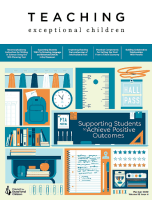
Teaching Exceptional Children
Bridging Research and Practice in Special Education.Teaching Exceptional Children is a leading journal in the field of special education, published by SAGE Publications Inc. Based in the UK, this esteemed journal serves as a vital resource for researchers, educators, and practitioners dedicated to addressing the needs of exceptional learners. With an ISSN of 0040-0599 and an E-ISSN of 2163-5684, it provides a platform for empirical studies, theoretical discussions, and practical applications in the realm of developmental and educational psychology. The journal holds respectable quartile rankings in Developmental and Educational Psychology (Q3, 2023) and Education (Q2, 2023), highlighting its growing influence among its peers. It ranks #804 out of 1543 in Social Sciences - Education and #232 out of 360 in Psychology - Developmental and Educational Psychology according to Scopus. Teaching Exceptional Children bridges innovative research with classroom practice, contributing to the discourse on effective teaching strategies for diverse learners. With ongoing publication converging towards 2024, it aims to inspire educators and researchers alike as they navigate the complexities of teaching exceptional populations.
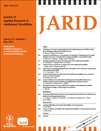
JOURNAL OF APPLIED RESEARCH IN INTELLECTUAL DISABILITIES
Championing Research that Makes a Difference.The Journal of Applied Research in Intellectual Disabilities, published by Wiley, is a pioneering platform dedicated to advancing knowledge and promoting best practices in the field of intellectual disabilities. With an impressive impact factor reflecting its significance—ranking in the Q2 category for Developmental and Educational Psychology and the Q1 category for Education in 2023—this journal serves as an essential resource for researchers, practitioners, and students alike. Its wide contribution to social sciences is evidenced by its high standings in Scopus rankings, positioned at Rank #297 in Education and Rank #103 in Developmental and Educational Psychology. This journal not only fosters innovative empirical and theoretical research but also encourages the dissemination of practical solutions to enhance the quality of life for individuals with intellectual disabilities. With access options available to meet diverse needs, including open access, it strives to make impactful research widely available, bridging the gap between academic research and practical application.
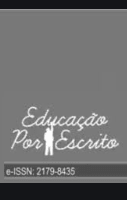
Educacao por Escrito
Bridging Cultures with the Power of Written KnowledgeEducacao por Escrito is a distinguished academic journal published by EDIPUCRS-EDITORA UNIV PUCRS, focusing on the intersection of education and writing practices. With its open access model established in 2010, the journal aims to democratize access to research and foster global dialogue on educational methodologies, literary analysis, and pedagogical innovations. Although specific metrics such as HIndex and Scopus rankings are pending, the journal is committed to quality scholarship that contributes to the fields of education and linguistics, making it an essential resource for researchers, educators, and students alike. Located in Porto Alegre, Brazil, Educacao por Escrito serves as a platform for diverse voices, aiming to advance understanding and practice in the expansive landscape of educational writing.
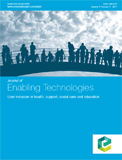
Journal of Enabling Technologies
Bridging Technology and Human PotentialThe Journal of Enabling Technologies, published by EMERALD GROUP PUBLISHING LTD, stands as a pivotal resource within the realms of Computer Science Applications, Health (Social Science), and Management of Technology and Innovation. Established in 2017 and converging towards its 2024 target, the journal has garnered significant recognition, reflected in its Q3 classification in multiple categories for 2023 and a commendable Q2 ranking in Rehabilitation. It holds respectable standings in Scopus rankings, notably positioning itself at the 38th percentile in Rehabilitation and 71st in Health Social Sciences. Aimed at promoting knowledge and innovation, the journal serves as an essential platform for researchers, professionals, and students, enabling them to explore advancements, share insights, and foster interdisciplinary collaboration. Although it does not offer open access, its impact factor and authoritative standing in the field underscore its importance for anyone dedicated to enhancing technology utilization across these vital sectors.
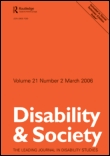
DISABILITY & SOCIETY
Exploring the intersection of disability, culture, and policy.DISABILITY & SOCIETY is a peer-reviewed academic journal published by Routledge Journals, Taylor & Francis Ltd, which has established itself as a leading platform for research in the fields of disability studies, social policy, and health professions. Since its inception in 1994, the journal has continuously contributed to scholarly discussions and practice, focusing on the social, cultural, and institutional factors that impact the lives of disabled individuals. The journal is highly regarded, holding a Q1 ranking in categories such as Health Professions and Social Sciences according to the 2023 metrics, indicating its significant influence and reach within the academic community. With its broad scope and emphasis on interdisciplinary approaches, DISABILITY & SOCIETY serves as an invaluable resource for researchers, professionals, and students alike, fostering a comprehensive understanding of disability in society and promoting inclusive practices. The journal is committed to providing insightful articles that encourage rigorous academic debate and inform policy development, making it essential reading for anyone involved in disability research and activism.
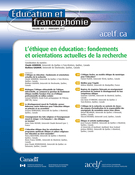
Education et Francophonie
Exploring the Dynamics of Francophone LearningEducation et Francophonie is a distinguished academic journal published by the Association Canadienne d'Éducation en Langue Française (ACELF), dedicated to the exploration and advancement of research in the field of French language education. With its ISSN 0849-1089 and E-ISSN 1916-8659, this journal serves as a vital platform for scholars, educators, and practitioners to disseminate their findings and engage in meaningful dialogue about the educational challenges and innovations within Francophone contexts. Although currently lacking in open access options, the journal's rigorous peer-review process ensures the publication of high-quality, impactful research that rigorously addresses the needs and dynamics of French language education in Canada and beyond. As a key resource for researchers and professionals, Education et Francophonie fosters a deeper understanding of pedagogical strategies, policy development, and cultural integration in language education, making it indispensable for anyone invested in the francophonie and education sectors.
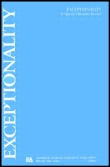
Exceptionality
Pioneering research on developmental exceptionalities.Exceptionality is a prestigious peer-reviewed journal published by Routledge Journals, Taylor & Francis Ltd, dedicated to advancing the understanding of exceptional individuals within the fields of developmental and educational psychology. With an ISSN of 0936-2835 and an E-ISSN of 1532-7035, the journal has established itself as a critical resource for researchers, educators, and practitioners interested in exploring the complexities of exceptionalities across various educational settings. Recognized in the Q2 category in both Developmental and Educational Psychology and Education for 2023, and ranking in the upper percentiles of Scopus' education and psychology categories, Exceptionality offers valuable insights through rigorous research and innovative methodologies. Although it is not an open access journal, its articles are accessible through academic libraries and institutional subscriptions, fostering research and collaboration in understanding and supporting individuals with exceptional needs. Since its inception in 1990, the journal continues to attract high-quality contributions, making it an indispensable publication for anyone interested in the nuances of exceptionality and its implications for education and society.
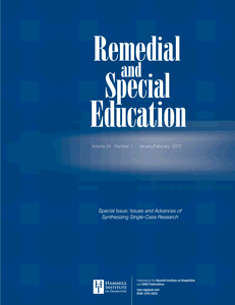
REMEDIAL AND SPECIAL EDUCATION
Bridging Gaps in Education and Health for AllREMEDIAL AND SPECIAL EDUCATION is a premier journal published by SAGE Publications Inc, dedicated to advancing the fields of education and public health. With an impressive legacy that spans from 1984 to 2024, this bi-monthly journal plays a pivotal role in disseminating cutting-edge research and innovative practices to support individuals with special educational needs. Ranked in the top quartile (Q1) for both Education and Public Health disciplines, and positioned in the 86th and 77th percentiles of their respective Scopus categories, this journal ensures a high visibility and significant impact rate among academics and practitioners alike. Though not open access, it offers subscription-based access, enabling a broad audience to engage with crucial findings and discussions. The journal's commitment to improving educational and health outcomes underscores its importance as a trusted source of knowledge, making it an essential read for researchers, educators, and policy-makers focused on special education and remedial strategies.
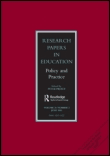
Research Papers in Education
Elevating knowledge in education for a brighter tomorrow.Research Papers in Education is a leading academic journal dedicated to advancing the field of education through the dissemination of high-quality research. Published by ROUTLEDGE JOURNALS, TAYLOR & FRANCIS LTD, this journal, with an ISSN of 0267-1522 and E-ISSN 1470-1146, has been pivotal in shaping educational discourse since its inception in 1986. The journal is recognized in the Q1 quartile for Education in the 2023 rankings and boasts an impressive 91st percentile in Scopus rankings. While it operates under a traditional subscription model, its reach is enhanced by its commitment to scholarly rigor, making it an indispensable resource for researchers, professionals, and students alike. Covering a diverse range of topics including pedagogical strategies, policy analysis, and educational technology, Research Papers in Education facilitates critical dialogue and innovation in the educational landscape, contributing significantly to the ongoing conversation around effective teaching and learning practices.
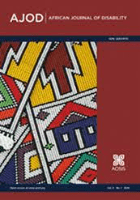
African Journal of Disability
Advancing Disability Research for a Brighter Future.African Journal of Disability, published by AOSIS, is a prominent Open Access journal dedicated to the interdisciplinary study of disability, with a special emphasis on rehabilitation practices and policies. Since its establishment in 2012, the journal has positioned itself as a vital resource for researchers, practitioners, and students engaged in the fields of physical therapy, sports therapy, and rehabilitation, particularly within the African context. With an ISSN of 2223-9170 and an E-ISSN of 2226-7220, the journal is accessible for free, fostering global dissemination of knowledge. In recent years, it has shown considerable academic impact, achieving a Q2 classification in the 2023 category of Physical Therapy, Sports Therapy and Rehabilitation, and Q3 in Rehabilitation. With robust Scopus rankings, including rank #77/161 in Medicine - Rehabilitation, the African Journal of Disability plays a crucial role in promoting high-quality research and practical insights that contribute to the understanding and improvement of disability services across Africa and beyond, making it an essential read for all stakeholders in this dynamic field.